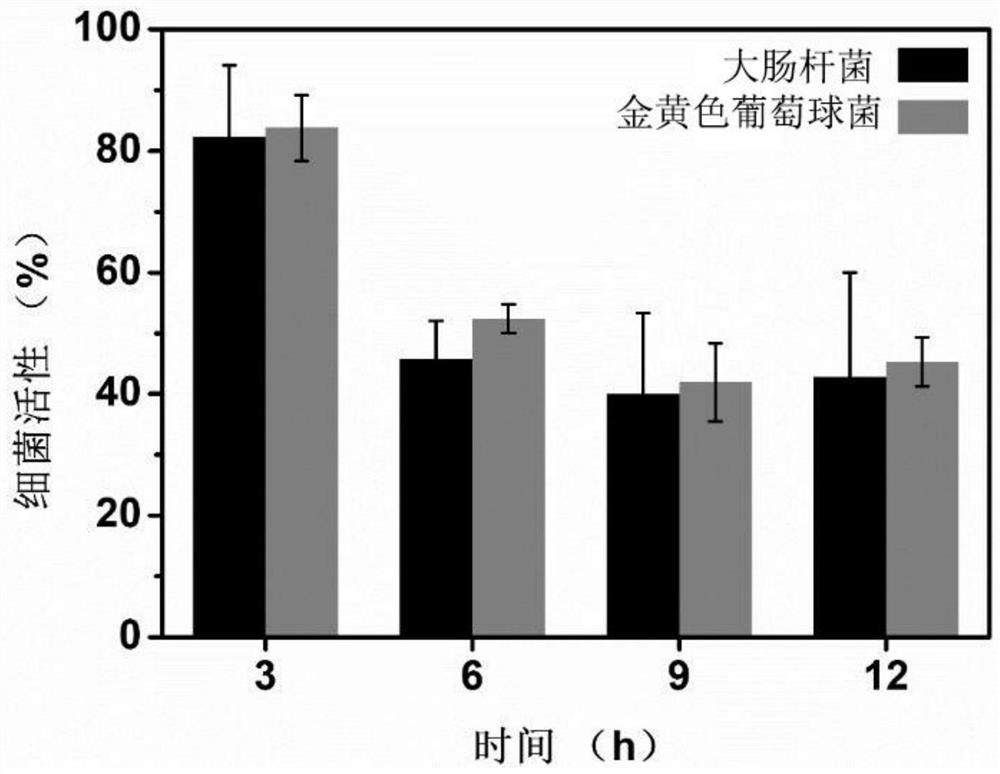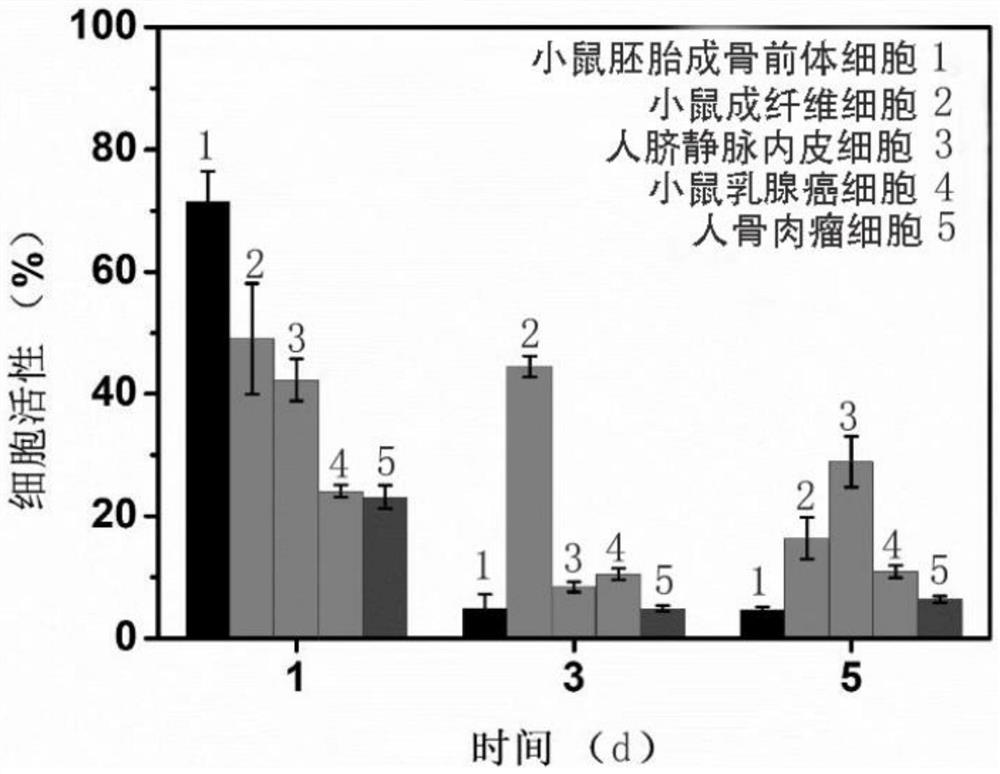A Method for Evaluating the Leaching Toxicity of Municipal Waste Incineration Fly Ash
A technology for waste incineration fly ash and incineration fly ash, which is applied in the fields of biochemical equipment and methods, color/spectral property measurement, and microbial determination/inspection, etc. security and other issues
- Summary
- Abstract
- Description
- Claims
- Application Information
AI Technical Summary
Problems solved by technology
Method used
Image
Examples
Embodiment 1
[0045] S1. Dry the waste incineration fly ash samples from the same batch of waste incineration power plants at 105°C for 24 hours, and seal them for future use. The TCLP test results are shown in Table 1;
[0046] S2. Take concentrated sulfuric acid and concentrated nitric acid and mix them with a volume ratio of 2:1. After mixing evenly, add the mixed solution dropwise to deionized water to make the pH value to 4 to make an extraction agent;
[0047] S3. Weigh 10g of the sample obtained in step S1 and 100mL of the extraction agent obtained in step S2, shake and mix in a PE barrel, seal and fix it on a flipping oscillating device, turn and shake at a speed of 30rpm at room temperature for 18h, The resulting suspension was filtered through a 0.3 μm microporous membrane to obtain a leaching solution. The leaching solution was alkaline and had a pH value of 11;
[0048] S4, the leachate that step S3 is obtained is acidified to pH 7.4, by adding 0.3g of beef extract, 1g of pepton...
Embodiment 2
[0070] S1. Dry the waste incineration fly ash sample from the same batch of waste incineration power plant at 105°C for 24 hours, and seal it for storage for later use. The TCLP toxicity test results of waste incineration fly ash are shown in Table 2;
[0071] S2. Take concentrated sulfuric acid and concentrated nitric acid and mix them with a volume ratio of 2:1. After mixing evenly, add the mixed solution dropwise to deionized water to make the pH value to 3 to make an extraction agent;
[0072] S3. Weigh 10g of the sample obtained in step S1 and 100mL of the extraction agent obtained in step S2, shake and mix in a PE barrel, seal and fix it on an inverting oscillating device, and invert and oscillate at a speed of 40rpm for 18h at room temperature, The resulting suspension was filtered through a 0.4 μm microporous membrane to obtain a leaching solution. The leaching solution was alkaline and had a pH value of 12;
[0073] S4, the leachate that step S3 is obtained is by acid...
Embodiment 3
[0095] S1. Dry the waste incineration fly ash samples from the same batch of waste incineration power plants at 105°C for 24 hours, and seal them for future use. The TCLP test results are shown in Table 3;
[0096] S2. Take concentrated sulfuric acid and concentrated nitric acid and mix them with a volume ratio of 2:1. After mixing evenly, add the mixed solution dropwise to deionized water to make the pH value reach 5 to make an extraction agent;
[0097] S3. Weigh 10g of the sample obtained in step S1 and 100mL of the extraction agent obtained in step S2, shake and mix in a PE barrel, seal and fix it on a flipping oscillating device, turn and shake at a speed of 30rpm at room temperature for 18h, The resulting suspension was filtered through a 0.5 μm microporous membrane to obtain a leaching solution. The leaching solution was alkaline and had a pH value of 12;
[0098] S4, the leachate that step S3 is obtained is by acidifying to pH 7.4, by adding 0.3g beef extract, 1g pepto...
PUM
| Property | Measurement | Unit |
|---|---|---|
| pore size | aaaaa | aaaaa |
Abstract
Description
Claims
Application Information
 Login to View More
Login to View More - R&D
- Intellectual Property
- Life Sciences
- Materials
- Tech Scout
- Unparalleled Data Quality
- Higher Quality Content
- 60% Fewer Hallucinations
Browse by: Latest US Patents, China's latest patents, Technical Efficacy Thesaurus, Application Domain, Technology Topic, Popular Technical Reports.
© 2025 PatSnap. All rights reserved.Legal|Privacy policy|Modern Slavery Act Transparency Statement|Sitemap|About US| Contact US: help@patsnap.com



